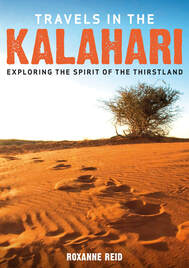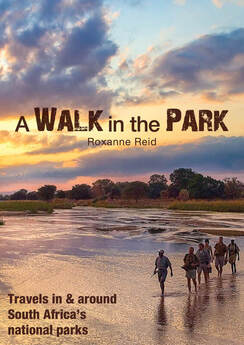In my last post, I mentioned some of the reasons why South Africans are up in arms about plans to drill for natural gas in the Karoo, ecologically sensitive home of exclusive succulents, San rock art and fascinating spaces. But what about the counter-arguments, and do they carry any weight?
Shell is also fond of pointing out that the US Environmental Protection Agency (EPA) gave fracking its stamp of approval. But it’s not that simple. Apparently the decision was later challenged – and fracking across the United States has been suspended until the EPA's Science Advisory Board reviews the issue.
So is fracking really necessary? More importantly, why has South Africa even agreed to consider it?
Those in the know in the energy business say South Africa has to enlarge its grid by more than 50 Gigawatts over the next 20 years to meet demand for electricity. We currently generate most of our electricity from coal and are in the top 10 largest producers of greenhouse gases. If the plan is to reduce the carbon emission rate, might natural gas be a good way to do that? Or does it come with unacceptable risks? As Pugh says, ‘We can survive without gas ... we cannot live without water.’
At the moment no one really knows how much gas is lurking in the depths under the Karoo, which is what Shell hopes to discover in its initial 90 000 square kilometre exploration due to start next year. That’s an area as big as KwaZulu-Natal. Canadian and Australian companies have also been given permits, adding a further 65 000 square kilometres to the land that could soon be under exploration … but not if Treasure the Karoo Action Group (TKAG) can help it. They're doing everything they can to raise awareness of the risks, including lobbying the South African government.
One bit of good news has been Water Affairs Minister Edna Molewa's comment in Parliament yesterday that if Shell's fracking plans in the Karoo are found to have a negative impact on the region's water reserves, it will not be issued a water licence. I'll bet anti-fracking campaigners were whooping with relief to hear that.
Even the law isn’t the Karoo landowner’s friend. By law, South African landowners don’t own any minerals or natural wealth under their land. Shell magnanimously claims it will compensate landowners who can 'show documented direct negative impact’ as a result of fracking. So the burden of proof lies with the landowner, poor sod, who doesn’t even get any capitalist benefit from the gas because the law says it isn’t his.
To find out more about the environmental ramifications of fracking, browse TKAG’s website and Chase Shell Oil out of the Karoo’s Facebook page.
But let’s give the last tongue-in-cheek word to Evita Bezuidenhout on Twitter. ‘Please stop Shell fracking in the Karoo!’ she tweeted. ‘Yes, they will find oil and then the US will invent a reason to invade us too.’
To get the word out, click on the social media buttons below to share this with your friends.
Copyright © Roxanne Reid - No words or photographs on this site may be used without permission from roxannereid.co.za


